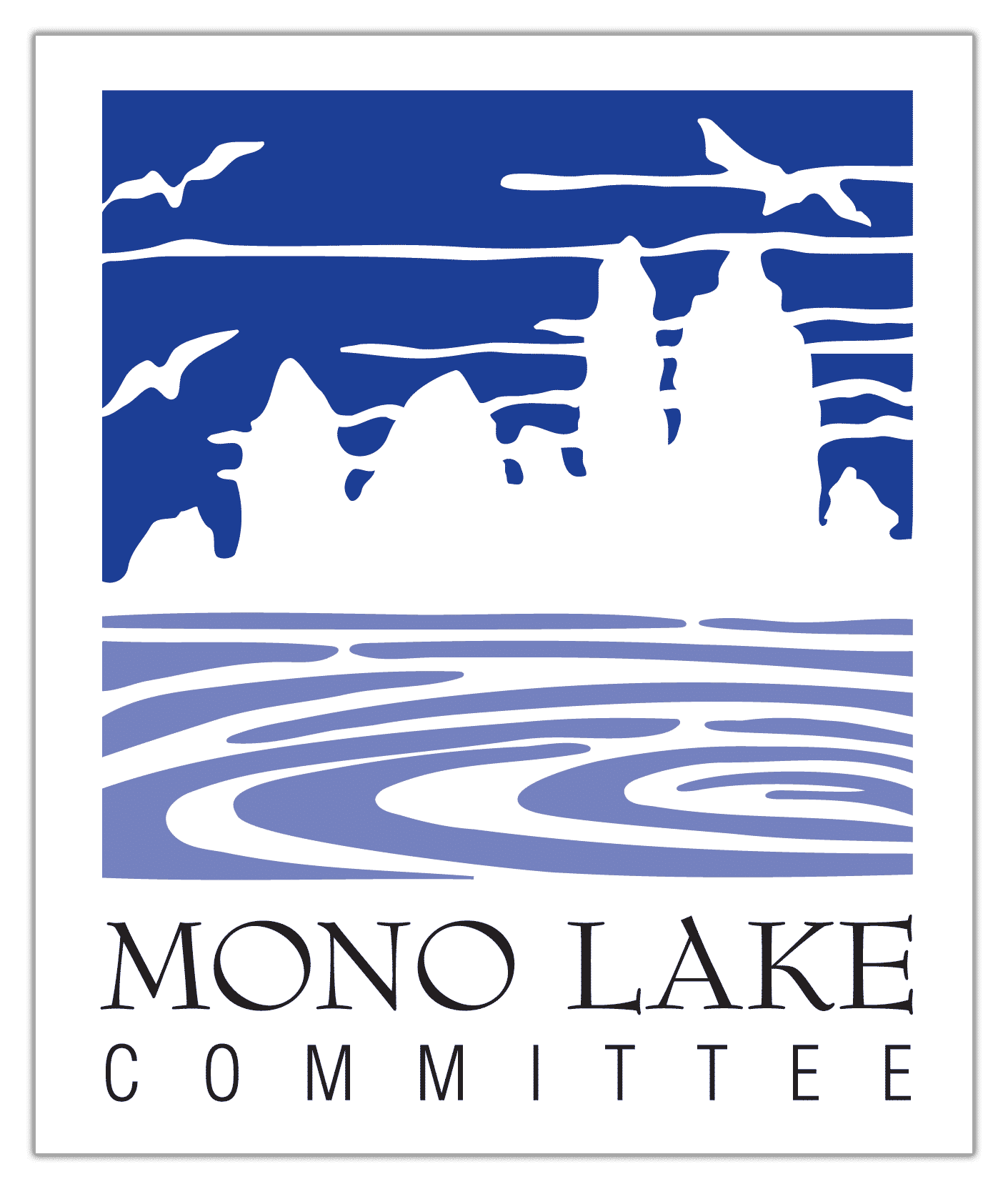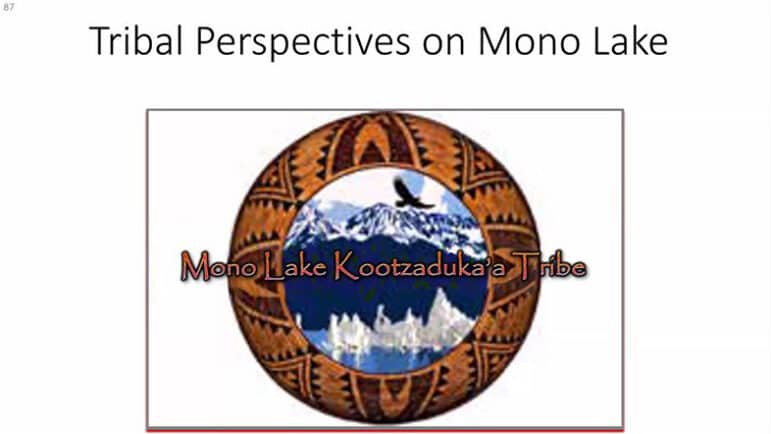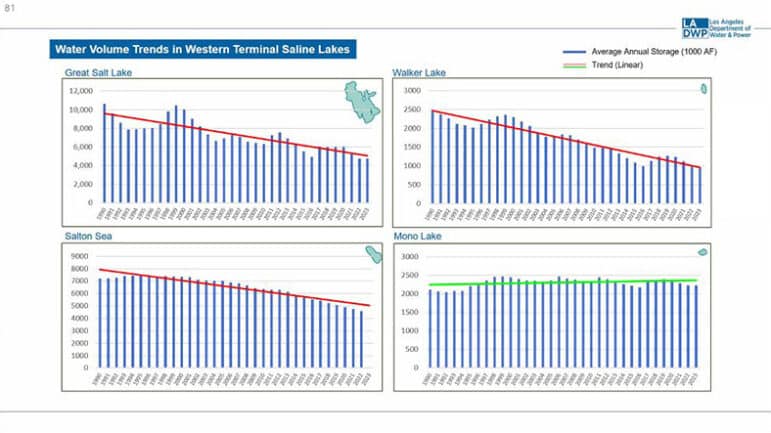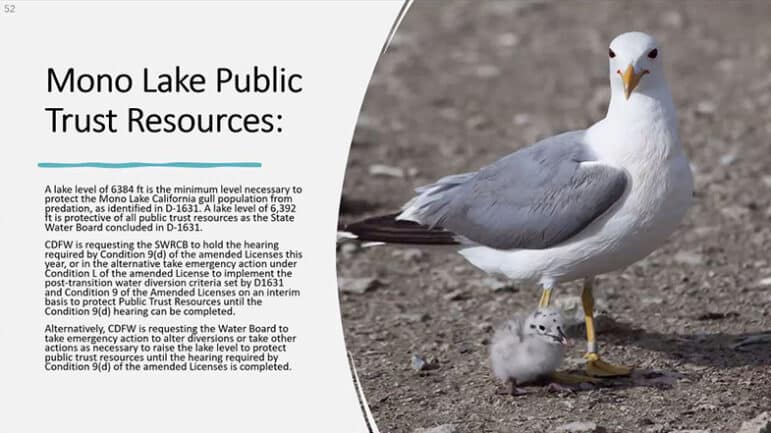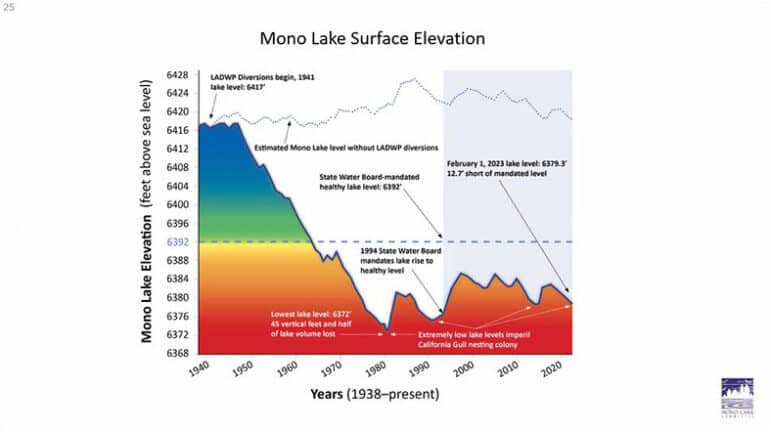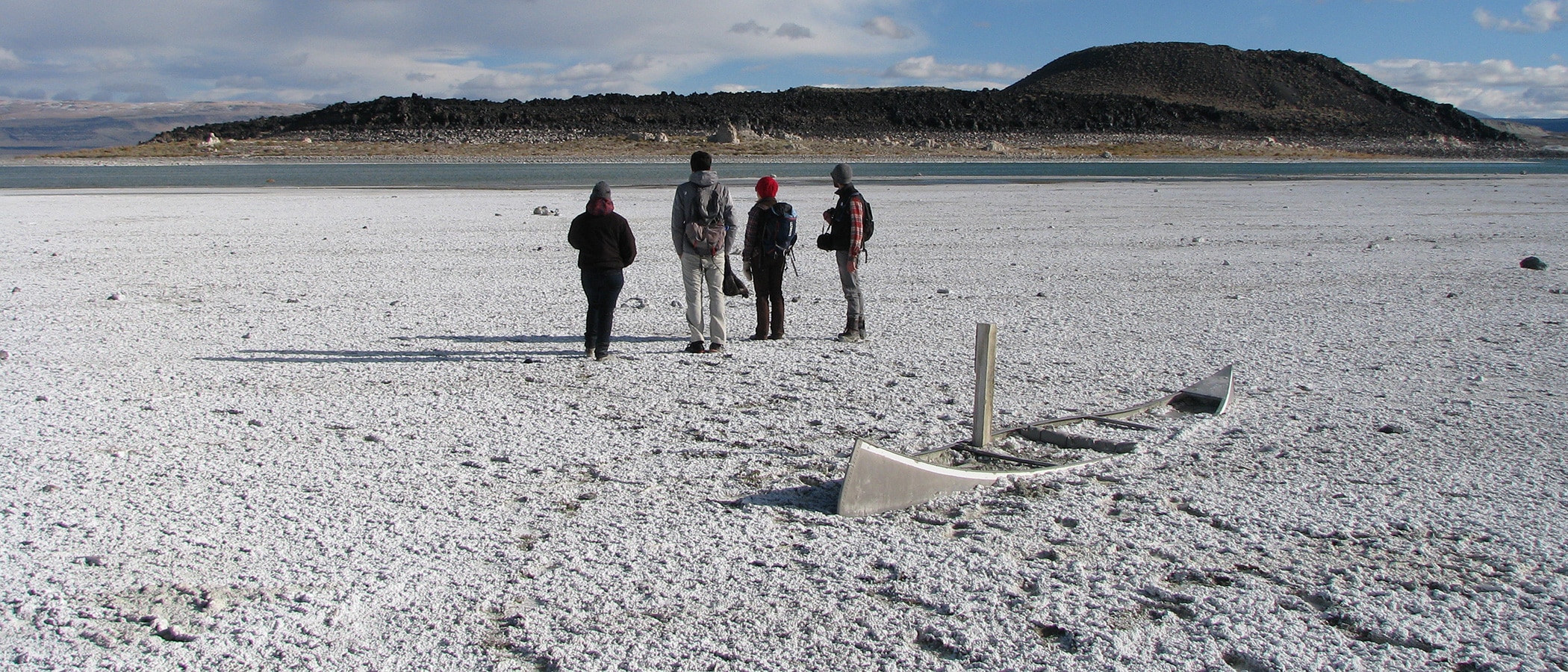
Update: Workshop video recording now available online
Click the video timestamp below to watch the corresponding section of the workshop on YouTube.
00:00:00 Introduction
00:19:35 Decision 1631, State Water Resources Control Board Staff
00:32:40 Mono Lake Committee Presentation
00:52:25 California Department of Fish & Wildlife Presentation
1:10:00 Los Angeles Department of Water & Power Presentation
1:27:10 Mono Lake Kootzaduka’a Tribe Presentation
1:58:40 Potential Management Actions, State Water Resources Control Board Staff
2:04:00 Public Comment
Yesterday the California State Water Resources Control Board held a public workshop in response to the Mono Lake Committee’s request that the Board take emergency action due to Mono Lake’s perilous low level. The five-hour workshop, which was attended by 365 people, added up to a strong case for the Board to initiate the hearing process necessary to direct more water to Mono Lake.
Presentations about Mono Lake’s current status
After State Water Board staff introduced the Mono Lake issue, the Mono Lake Committee, Los Angeles Department of Water & Power (DWP), California Department of Fish & Wildlife (DFW), and the Mono Lake Kootzaduka’a Tribe all made presentations. The Tribe’s remarks were a highlight—after calling for full consultation with the Tribe about Mono Lake decisions and more water for the lake, Vice Chair Dean Tonnena eloquently summed up the stakes when he said, “decisions regarding Mono Lake have impacts that span generations into the future.”
The Committee’s presentation reviewed how the Board’s expectations for lake restoration have not been met, underscoring that the lake has only risen 25% of the way to the required lake level and is nine years overdue in getting there, while DWP has diverted all the water the Board expected it to and more.
DFW, citing the risk to wildlife and the public trust posed by the current low lake level, requested the Board suspend diversions until the lake rises to a higher level through a hearing or other process this year.
DWP’s presentation outlined an alternative view, claiming incorrectly that there is no crisis facing California Gulls, no landbridge in Mono Lake, and that the California Gull population is better off at low lake levels. These dated arguments are reminiscent of failed DWP claims made during the original fight to save Mono Lake back in the 1990s.
Public comments overwhelmingly in support of Mono Lake
After the presentations the Board heard public comment—an impressive list of 49 people spoke in support of Mono Lake from a diverse range of organizations (see a partial list below).
Many people called in representing communities in the Los Angeles area, including Elsa Lopez, whose group Mothers of East Los Angeles – Santa Isabel conducted some of the first direct-install conservation work in LA in the 1980s. Andy Lipkis, founder of TreePeople, reminded the Board of the vast creative water conservation potential as yet untapped in Southern California. Community groups who have visited the Mono Basin Outdoor Education Center, like Communities for a Better Environment and East Yard Communities for Environmental Justice, spoke passionately about Mono Lake’s importance to the people of Los Angeles.
Scientists and organizers also called in to speak from Mar Chiquita in Argentina and Great Salt Lake in Utah, two saline lakes that, along with Mono Lake, provide crucial habitat for birds that migrate along the Pacific Flyway. Saving Mono Lake and other saline lakes is of hemispheric importance.
Verbal comments in opposition to the State Water Board taking any action came from one Southern California water utility insisting that if DWP could not divert water from Mono Lake it would have repercussions across Southern California, an old and empty argument that has also been around since the 1990s.
Parties calling for the State Water Board to hold a hearing and take action to raise Mono Lake (partial list)
- Accelerate Resilience Los Angeles
- American Muslims for Sustainability
- Aves Argentina
- California Coastkeeper Alliance
- California Hispanic Chambers of Commerce
- California Office of the National Audubon Society
- California State Park Rangers Association
- California State Parks
- California Trout
- Communities for a Better Environment
- East Yard Communities for Environmental Justice
- Faith Action for All
- Former Executive Director, Mothers of East LA – Santa Isabel
- Friends of Great Salt Lake
- Friends of the Inyo
- Great Basin Unified Air Pollution Control District
- Inyo National Forest
- Los Angeles Waterkeeper
- Mono County
- Oikonos Ecosystem Knowledge
- Past member of the California State Water Resources Control Board, 1992–1999
- Sierra Club
- The Nature Conservancy, California Chapter
- Water Scarcity Solutions, National Resources Defense Council
- Watershed Progressive
- Western Hemisphere Shorebird Reserve Network
Next steps
The workshop was informational only and the first step in a long process leading to a hearing and decision-making vote by the Board. Thank you to all of you who have made comments to the State Water Board, either by speaking at the workshop or by writing a letter. This is a strong start to the public comment period—so far the Board has received nearly 900 letters! If you haven’t yet written a letter, there’s still time to send one by March 16.
A video of the full hearing will be posted soon—when the video is posted we’ll point out some highlight comments for anyone who needs a field guide to the workshop highlights.
Action Alert: Make your voice heard for Mono Lake!
Mono Lake is dangerously low—putting ecosystem health and wildlife at risk.
On February 15, the State Water Board held a public, virtual information-gathering workshop on Mono Lake with a public comment period until 4:00pm PDT on March 24, 2023.
